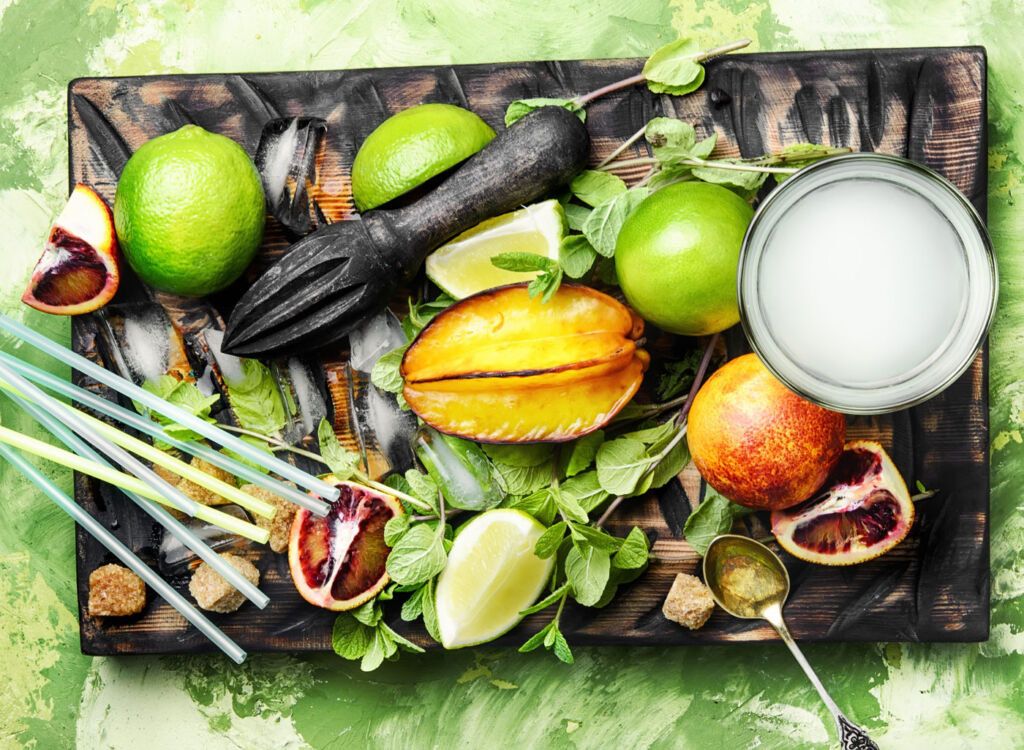
In January 2023, countless people will be moving away from highly-processed meat-based foods, opting for a healthier, more natural approach by going vegan. A plant-based diet brings a whole host of benefits, one of which is it could improve sleep quality.
Sleep and good health go hand-in-hand. Poor quality sleep raises the risk of long-term chronic health problems and has more immediate effects, such as how you get along with others, think, learn and react to situations. Many medical experts often state that the body has two brains, one in the skull and the other being your gut, and for your body to perform to its full potential, you need to fuel your stomach with the right foods.
In George Orwell’s book Animal Farm, there is a well-known phrase, “Four Legs Good, Two Legs Bad”, and it’s a similar case with foods, “Natural foods good, highly processed foods bad”.
For this health feature, Sleep Expert Martin Seeley shares with us some of the benefits a plant-based diet can bring to sleep, whilst Reema Patel, a Plant-based Nutritionist, provides some tips on maintaining a vegan diet, along with some meal ideas.

1. You fall asleep faster
If you find it difficult to fall asleep at night, then trying a vegan diet or taking up Veganuary might help. The reason being is that Vitamin B12 can be found in many leafy green vegetables such as spinach, kale, beetroot and lettuce salad leaves, and this vitamin is key for regulating that all-important sleep-wake cycle, which means that eating these types of foods which are staples in a vegan diet can help you to feel tired and sleepy at night and alert during the day.
Furthermore, digesting high levels of B12 could also mean you are less likely to suffer insomnia, therefore having a better quality of sleep. Some non-vegan foods which offer high levels of B12 are meats and fish, so it’s important to ensure that you are substituting these foods with alternatives such as plant-based meats, fortified cereals and other replacement foods.
2. You sleep more soundly
Opting for a vegan diet can also help you to sleep more soundly and enjoy an uninterrupted, deep sleep, which is imperative to maintain normal bodily functions. There are a number of reasons why; first of all, vegan foods typically have lower levels of sugar, so they are easy to digest, which means you aren’t susceptible to digestive issues whilst you sleep, such as stomach pains, bloating and digestion.
A vegan diet also includes lots of fibre, and this is important for keeping your glucose levels balanced; this then contributes to a better quality of sleep and allows you to experience less broken sleep.
3. No more vivid dreams
Experience vivid dreams or night terrors? Then you may want to switch to a vegan diet! This is because experiencing vivid dreams is often associated with an amino acid called tryptophan which is then converted into serotonin and can promote vivid dreams. Tryptophan is commonly found in foods such as milk, eggs, cheese, lamb and fish, so if you go Vegan, you are less likely to experience such dreams.
4. Improved mood, which helps you sleep
Having a vegan diet can also improve your mood, which is a great reason to try Veganuary this year, especially when January can be rather grey and depressing. Many studies have shown that those who suffer from mood disorders are more likely to experience insomnia and broken sleep, and a night of poor sleep can then impact your mood even more and make you feel irritable, low and depressed.
So, by adjusting your diet to help boost energy levels and mood, you are also improving your chances of getting a good night’s sleep and improving your overall sleep quality. Vegan diets commonly include mood-boosting ingredients such as calcium, p; potassium, magnesium and vitamin B, which all help to lower stress levels and boost mood, allowing for a more restful night’s sleep.

How can you maintain a vegan diet?
Reema Patel of Dietitian Fit & Co recommends:
Start small with a few swaps – for example, opt for plant-based milk in cereals or coffee or try soy yoghurt with your granola instead of Greek yoghurt. How about going for a vegetarian chilli with beans and lentils instead of the mince?
Have a few vegan meals up your sleeve for quick prep – when you are hungry and want something fast, be sure to think of a few vegan meals that are easy to put together. For example, a simple pesto pasta but use vegan pesto instead, and add in some vegan cheese.
Maybe even try a high-protein pasta to boost the protein content. Or how about scrambled tofu on toast instead of scrambled eggs? You can buy this ready-prepared. All you need to do is heat and enjoy!
What are the main protein sources of a plant-based / vegan diet?
Some good plant-based protein sources include soy and soy products (such as tofu, edamame beans and tempeh) and legumes (such as kidney beans, chickpeas, and red lentils). In addition, nuts and seeds such as chia seeds, hemp seeds and walnuts provide a source of protein, and some grains like quinoa and teff can provide a source of protein.
Not forgetting the vegan meat substitutes and Seitan, which is made from wheat protein. Some people on plant-based diets also consume eggs, fish and dairy (e.g. milk, cheese & Greek yoghurt), which are excellent protein sources.
What are some plant-based diet breakfast ideas?
Peanut butter and banana on whole grain toast – protein and healthy fats from the peanut butter, banana and wholegrain toast provide carbohydrates and a source of fibre.
- Chia pudding – chia seeds are an excellent source of healthy fats and plant-based protein, and this can be made with dairy milk for another protein source or plant-based milk alternatives (be sure to choose a fortified, no added sugar variety). Any additional fruits added provide a source of fibre.
- Tofu scramble & wholegrain toast with mushrooms – tofu is an excellent protein source, so try combining it with carbohydrates and fibre from the toast and mushrooms to get in plenty of nutrients to start the day!
What are some plant-based diet lunch ideas?
Halloumi and cannellini bean spinach salad – the halloumi provides both protein and fats, with the beans supplying additional protein and some high-fibre carbohydrates. The spinach adds a further fibre boost as well as a range of vitamins and minerals.
Read more health guides, features and news here.
![]()




You must be logged in to post a comment.